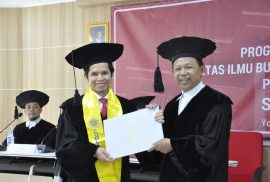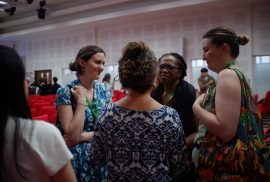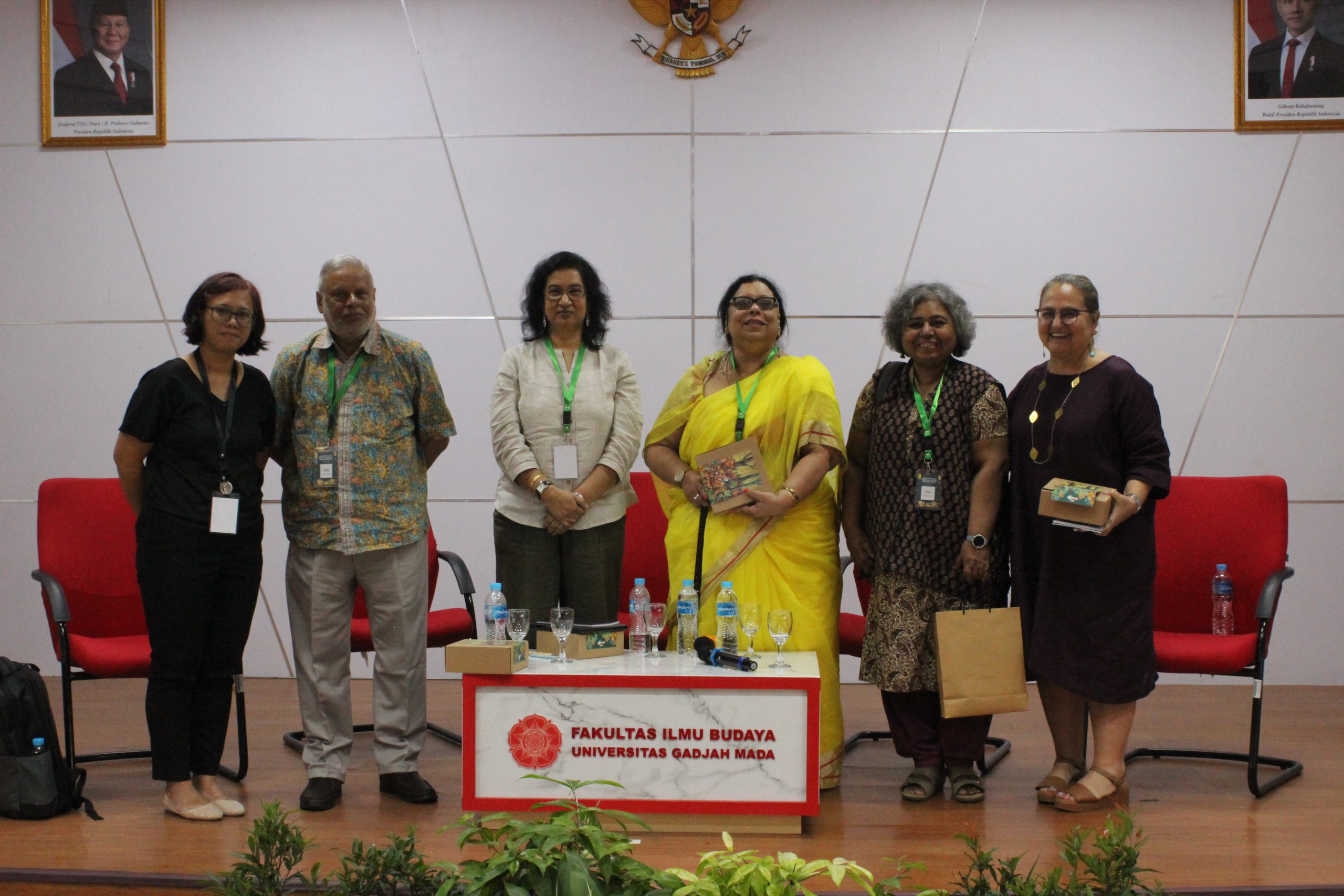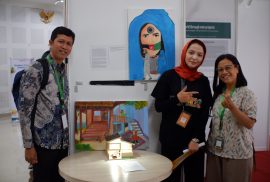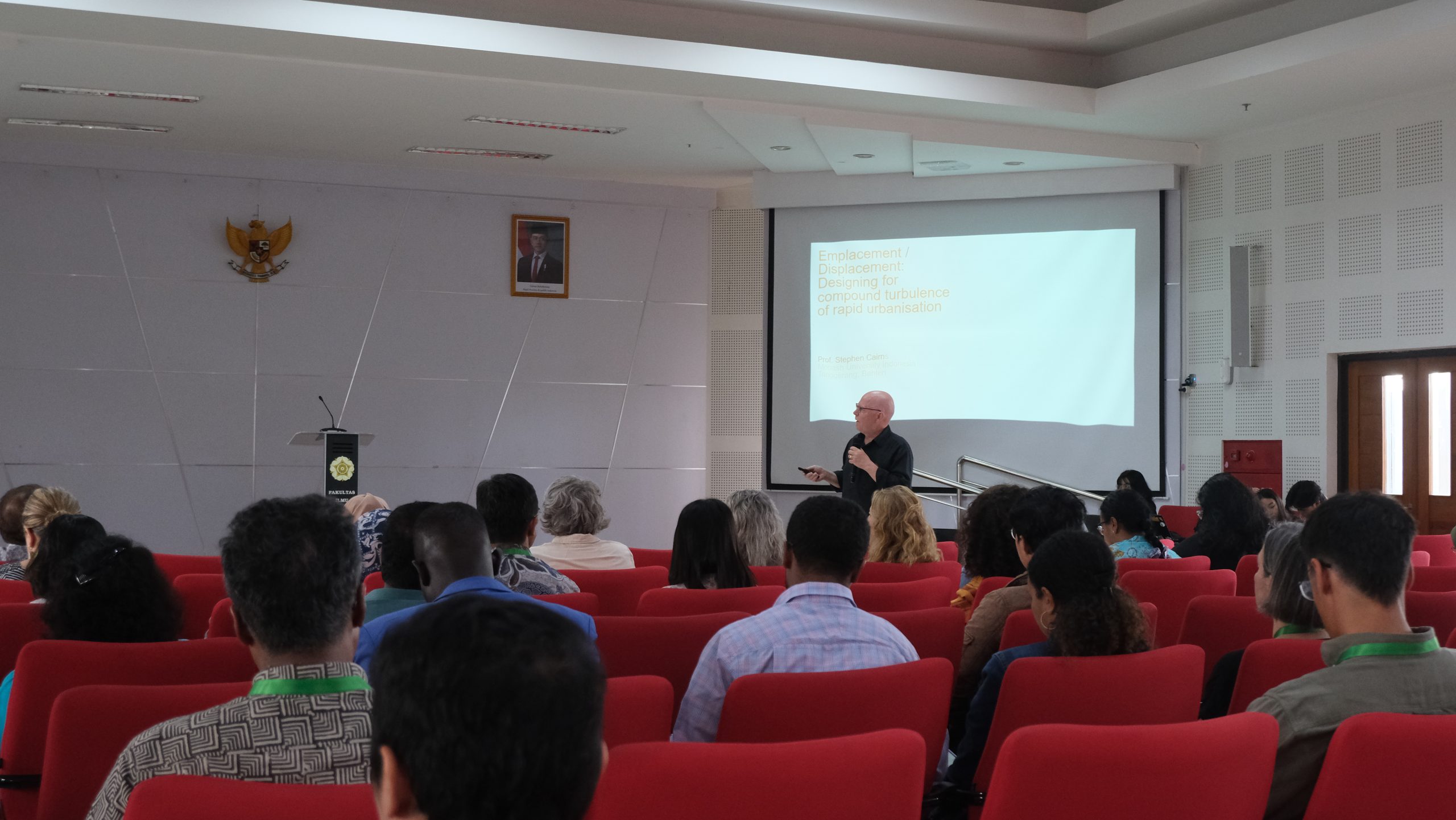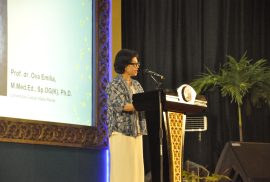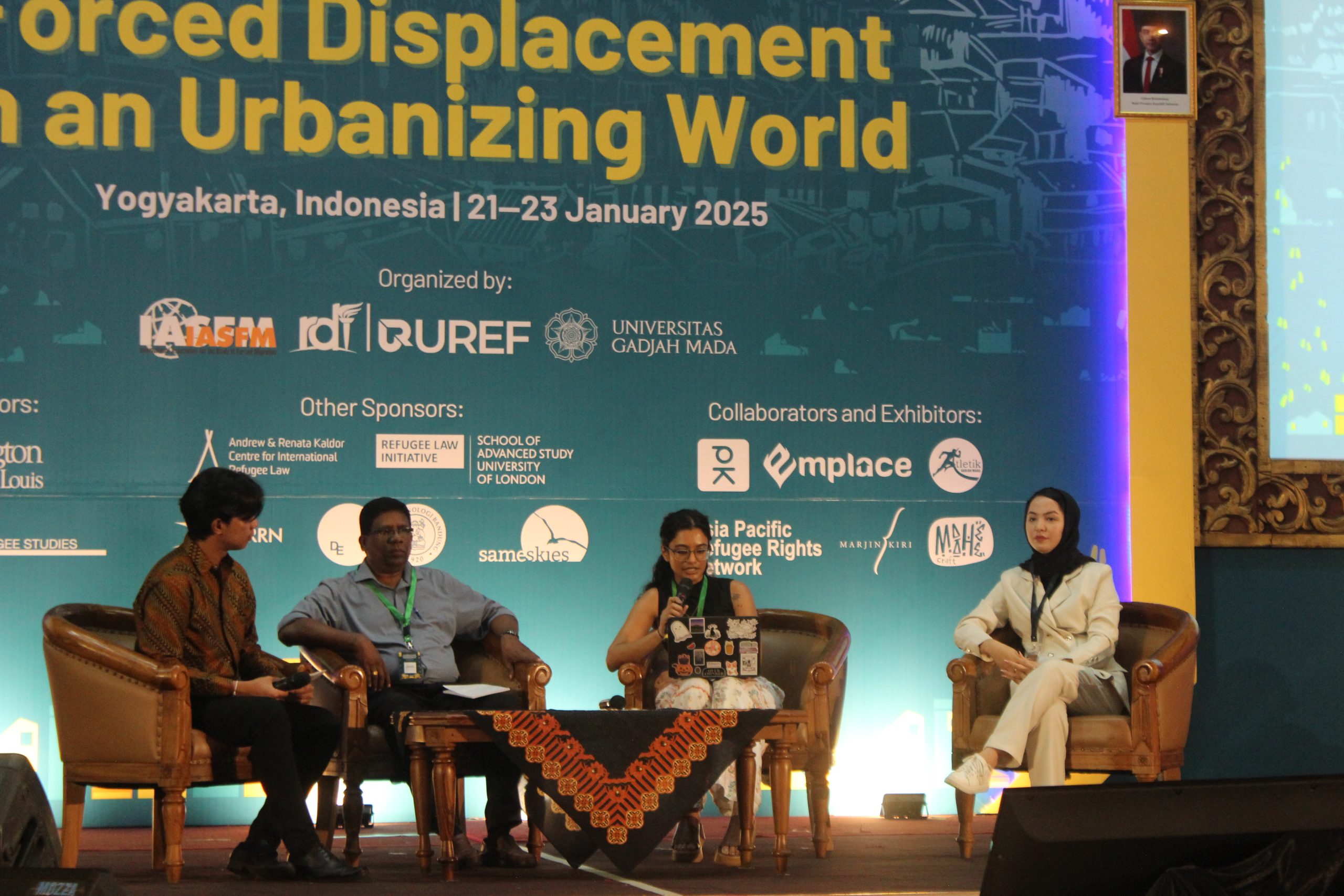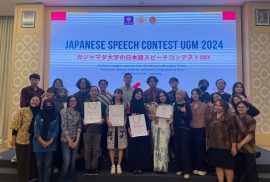Yogyakarta, 3/2/2025 – The Faculty of Cultural Sciences of Universitas Gadjah Mada held an open session of the doctoral program on Monday, February 3, 2025 in the Multimedia Room of the Margono Building on the 2nd floor. On this occasion, Dr. Surahmat, S.Pd., M.Hum., a student of the Doctoral Study Program in Humanities at the Faculty of Cultural Sciences of Universitas Gadjah Mada with a field of linguistic studies who is also a lecturer at the Indonesian Language and Literature Study Program at Universitas Negeri Semarang, raised a dissertation with the topic “Discourse Analysis of Ethnic Humor in Indonesia: A Study of Eight Ethnic Groups”.
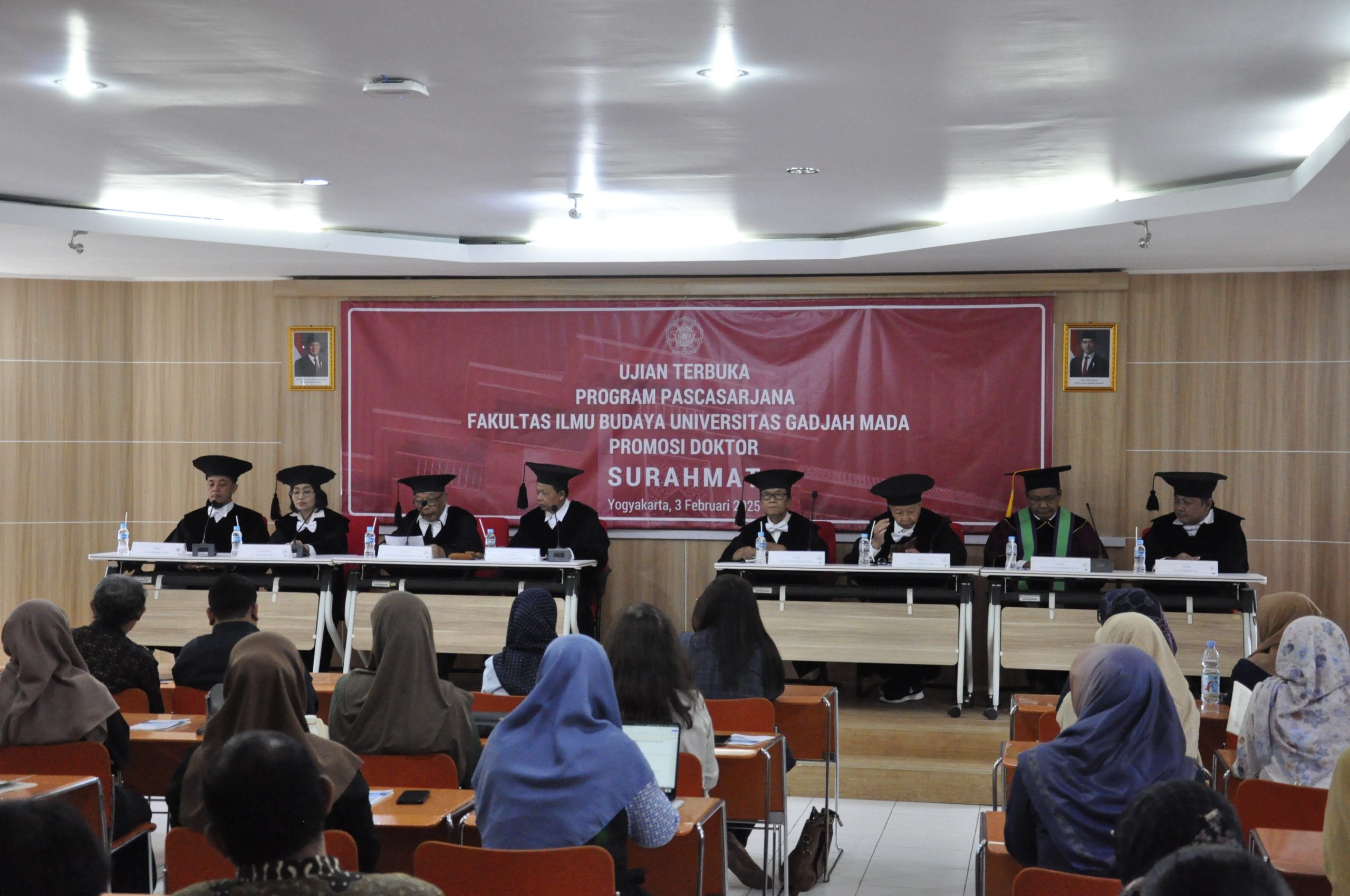
The research conducted by Dr. Surahmat, S.Pd., M.Hum. aims to analyze ethnic humor discourse in Indonesia by describing its type, form, structure, and language use, as well as explaining its ideology and social function in a multicultural society. He revealed that efforts to reveal the ideological meaning of humor are not simple because how humor shapes the knowledge, attitudes, and social practices of a society can differ from one another depending on personal preferences and the influence of the environment or other contexts.
The event started at 10.00 WIB with Prof. Dr. Sangidu, M.Hum. as the session leader. The session was held with a dissertation test session where there were various questions from each promoter who attended the session. One of the promoters, Prof. Dr. I Dewa Putu Wijana, S.U., M.A., started the dissertation test session with a question related to the existence of humor which is likened to a double-edged knife where humor can bring joy, but can also bring sadness to wrath if the recipient of humor feels hurt by the humor directed at him.
Related to this question, in his dissertation, Dr. Surahmat, S.Pd., M.Hum. revealed that humor creators and users should be more observant in creating and using humor so as not to reinforce unfair values, such as marginalization and discrimination. Instead, humor creators and users can use ethnic humor to build collective awareness as a multiethnic nation that must respect each other.
In the final decision of the trial, Surahmat, S.Pd., M.Hum. officially holds a doctoral degree in the field of linguistic studies in the S3 Study Program in Humanities Sciences, Faculty of Cultural Sciences, Universitas Gadjah Mada. Congratulations to Dr. Surahmat, S.Pd., M.Hum.! Hopefully, his research can contribute to the development of knowledge on humor and linguistic studies.
[Public Relation of Faculty of Cultural Sciences, Muhammad Ebid El Hakim]

